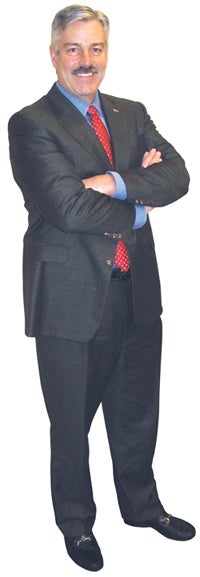Marlborough-based Workscape has seen tougher times than these. After all, the tech startup was founded in 1999 during the run-up to the dot-com bust. And it managed to survive those tough times, when its customers — large Fortune 500 companies — were slashing their IT investments. Today, the 400-person company, which provides web-based software for HR functions, is heading into its second decade with three locations (Marlborough, Boise, Idaho and Bangalore, India), led by the man who founded the company, Timothy T. Clifford. Here, he talks about Workscape’s past as well as its future.
How did you end up where you are today?
I started off my career with Prudential in the group benefits division in Boston. I cut my teeth walking through the HR door in large companies in a sales and marketing role. Then I went to a company in Framingham called Consolidated Group, which was a third-party administrator. I was with them until we sold it in 1996. I wanted to start a company using my background in the benefits universe. I was looking at Internet technology and how that was changing things and I connected the dots between using web technology and helping employees get access to HR forms and benefits. We launched the company in 1998 with a couple of dollars in the bank and worked out of my living room.
You launched during the dot-com boom. How did you survive the collapse?
It was not easy. We still did very well for two years after the bubble burst. We had built a strong team, but enterprise budgets were being slashed everywhere, so we had a difficult middle period for our company. We continued to do well in terms of adding new clients but it was a difficult transition for the company to move away from the spending practices of the early years. But we survived that, which many companies didn’t.
And Workscape almost went public during that frenzied time, didn’t it?
In the middle of the dot-com boom money was being thrown all over the place. Companies had billion-dollar valuations with no revenue and it was a crazy time. Now as we begin the second decade, we’re in a completely different environment. We actually were on file to go public in the year 2000. At the time we had a $450 million valuation on the company, Morgan Stanley was our banker getting ready to take us out and the bubble burst about three weeks before our road show. It turns out to be a good thing because we were not ready to be a public company.
What stage is the company in now? It’s no longer a startup, right?
We try to maintain startup attitude, which is to have an urgency around our customers and their needs and innovation. Those are the two primary areas we think that we want to bring forward from our early days. Innovation is going to continue to be something that we try to nurture – that entrepreneurial and startup flame. As the company grows you go through several iterations and we’ve been through several already. Now we’re pretty comfortable that we’ve got a good infrastructure and scale in place to support the growth of the company into the near term.
How has your role changed in the last 10 years?
I have a better office and there’s less noise! In the early days I remember sitting with my assistant trying to figure out literally how to pay people. Today we’ve got a lot of infrastructure around us that manages the day to day operations of the business. In the last year, I’ve been thinking in terms of longer-term strategy, but at the same time what I haven’t lost is the fear of failure.
Where do you hope the company will be 10 years from now?
Back in my living room! I think there is an enormous opportunity for this company to continue to grown. I have no specific target in mind but I do know it will be a lot bigger than it is today.

